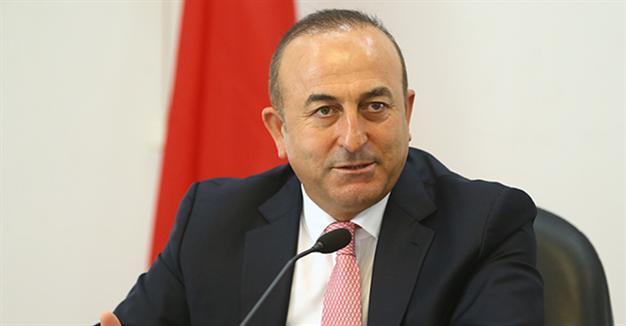US guarantees no PYD presence west of Euphrates after ops on ISIL: Turkish FM
ISTANBUL

The United States has provided guarantees that forces from the Syrian Kurdish Democratic Union Party (PYD) will not retain a presence west of the Euphrates River after U.S.-backed operations against the Islamic State of Iraq and the Levant (ISIL) are completed in the region, Turkey has claimed.
“If the YPG [People’s Protection Unit, the military wing of the PYD] wants to give logistical support on the east of the Euphrates then that is different. But we do not want even a single YPG militant to the west [of Euphrates] especially after the operations. The U.S. has given a guarantee about this,” Turkish Foreign Minister Mevlüt Çavuşoğlu said June 7 during a televised interview with state-owned broadcaster TRTHaber.
“If they keep their word, they have guaranteed us because the YPG/PYD conduct ethnic cleansing wherever they go,” Çavuşoğlu said.
Çavuşoğlu said the YPG and PYD were conducting ethnic cleansing against people and groups who were “not Marxists, Leninists and atheists,” adding that this was a major threat to the territorial integrity of Syria.
Turkey and the U.S. have been at loggerheads due to the different designation of the PYD and the YPG. While Turkey regards the two groups to be offshoots of the outlawed Kurdistan Workers’ Party (PKK), with which it has been locked in deadly clashes since the mid-1980s, the U.S. – though designating the PKK as a terror organization – sees the PYD and YPG as reliable partners in its fight against ISIL in Syria.
Turkey previously declared that its “red line” would be violated if the PYD and YPG crossed to the west of the Euphrates River, although Ankara has so far been forced to look on as YPG has pursued the fight against jihadists in the area.
Çavuşoğlu said it was “unacceptable” that the U.S. was cooperating with the PYD and YPG, claiming that the groups were sending fighters to “conduct attacks on Turkey,” “perpetrated bombing attacks on Ankara” and “trained terrorists in its camps.”
He said Turkey and the U.S. had had opposing views on the issue from the beginning and that they had expressed themselves “very clearly” to their interlocutors, starting with U.S. President Barack Obama.
 The United States has provided guarantees that forces from the Syrian Kurdish Democratic Union Party (PYD) will not retain a presence west of the Euphrates River after U.S.-backed operations against the Islamic State of Iraq and the Levant (ISIL) are completed in the region, Turkey has claimed.
The United States has provided guarantees that forces from the Syrian Kurdish Democratic Union Party (PYD) will not retain a presence west of the Euphrates River after U.S.-backed operations against the Islamic State of Iraq and the Levant (ISIL) are completed in the region, Turkey has claimed.